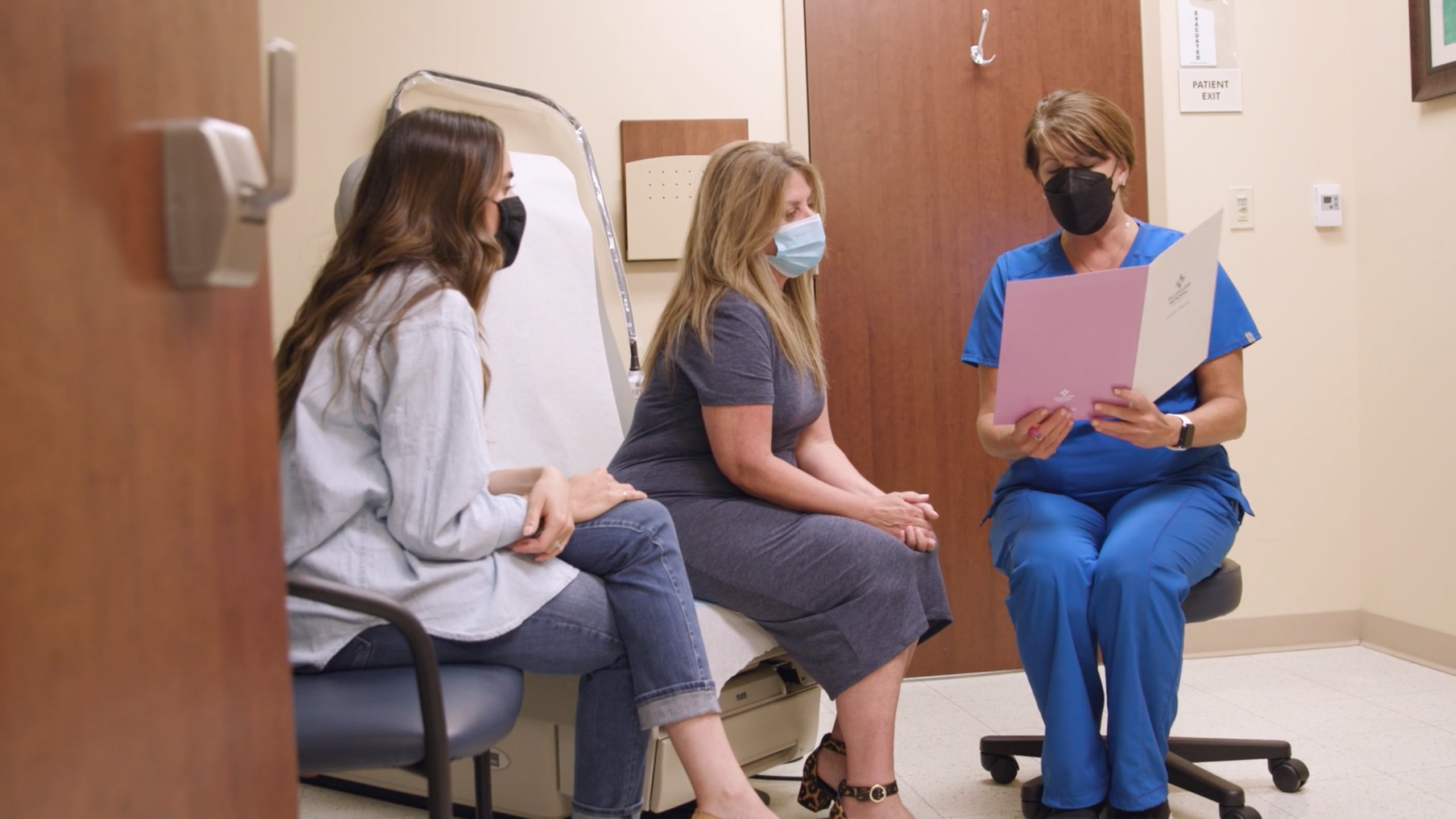5 Gynecologic Cancer Symptoms You Should Take Seriously
September 22, 2022
By: Tallahassee Memorial HealthCare
Categories: Gynecologic Oncology, Healthy Living, Cancer
Anyone with a female reproductive system is at risk for developing gynecologic cancer, and as with many conditions, that risk increases with age. While routine screening is a powerful tool for detecting some of these cancers, others tend to fly under the radar.
Of the roughly 100,000 cases of gynecologic cancer diagnosed in the United States each year, many are found after patients report common gynecologic cancer symptoms to their primary care provider or gynecologist.
Out of the five main types of gynecologic cancer, only one – cervical cancer – can be detected through routine screening tests such as the Pap test (or Pap smear) and human papillomavirus (HPV) testing. Detecting other gynecologic cancers often relies on patients recognizing the symptoms and reporting them to their provider. This makes it essential that you listen to your body and take any symptoms seriously.
At TMH Physician Partners – Gynecologic Oncology, Tallahassee Memorial HealthCare’s (TMH) team of three highly trained gynecologic oncologists has nearly 70 years of combined experience caring for and treating patients with a range of gynecologic cancers.
What is Gynecologic Cancer?
Gynecologic cancer is any cancer that begins in the female reproductive system, including:
1. Cervical Cancer: Cervical cancer begins in the cells of the cervix, which is the lower part of the uterus that connects to the vagina.
2. Ovarian Cancer: Ovarian cancer is a growth of cells that forms in the ovaries. The cells multiply quickly and can invade and destroy healthy body tissue.
3. Uterine/Endometrial Cancer: Endometrial cancer, often referenced interchangeably with uterine cancer, is the most common gynecologic cancer. The leading cause is having too much of the hormone estrogen compared to the hormone progesterone.
4. Vulvar Cancer: Vulvar cancer occurs on the outer surface area of the female genitals. The vulva is the area of skin surrounding the urethra and vagina, which includes the clitoris and labia.
5. Vaginal Cancer: Vaginal cancer is a rare form of gynecologic cancer that happens inside the vagina, which connects your uterus to your outer genitals. Most commonly, it occurs in the cells that line the surface of your vagina, sometimes called the birth canal.
While risk factors vary for the different types of gynecologic cancer, any of the following may increase your chance of developing one:
- HPV infection
- Obesity
- Diabetes
- Family history of related cancers
- Genetics
- Exposure to diethylstilbestrol, a synthetic form of the female hormone estrogen
What Are Common Symptoms for Gynecologic Cancer?
As with risk factors, the signs and symptoms associated with each gynecologic cancer can vary. Some of the most common symptoms to watch for include:
1. Abnormal (or Postmenopausal) Vaginal Bleeding or Discharge: Abnormal vaginal bleeding or discharge is a common symptom for all gynecologic cancers, except vulvar cancer. This might be a change in your period, bleeding between periods or bleeding after menopause. If you experience postmenopausal bleeding more than a year following your last period – whether light or heavy bleeding – speak with your primary care physician or gynecologist as soon as possible.
2. Trouble Eating: Feeling full too quickly, difficulty eating, bloating and abdominal or back pain are common symptoms of ovarian cancer. If these symptoms develop, specifically ask your doctor whether ovarian cancer could be the cause.
3. Pelvic Pain: Ongoing pelvic pain, pressure, cramping or discomfort is a common symptom for ovarian and uterine cancers.
4. Bathroom Issues: More frequent or urgent need to urinate and/or constipation are common signs associated with ovarian and vaginal cancers.
5. Vaginal Changes or Irritation: Itching, burning, pain or tenderness of the vulva, and changes in vulva color or skin, such as a rash, sores or warts, are signs of vulvar cancer.
Each of these symptoms may be caused by cancer or other health problems, so it’s essential you see your doctor if you experience them. They’ll help you determine the root cause.
How is Gynecologic Cancer Diagnosed?
Because Pap tests can only detect cervical cancer, other types of gynecologic cancers rely on medical history reviews, physical examinations, diagnostic tests and imaging for diagnosis. Here’s what patients can expect from each:
- Medical History: Your physician will speak to you about your symptoms and review your medical history, as well as determine if you have risk factors that give you a higher likelihood of developing gynecologic cancer.
- Physical Exam: Your physician will examine your body and pelvic region for abnormalities and signs of gynecologic cancer.
- Blood Tests: You doctor may take bloodwork to measure tumor markers and other characteristics that may indicate a gynecologic cancer.
- Imaging Tests: Imaging tests, such as magnetic resonance imaging (MRI) studies, computed tomography (CT) scans and ultrasounds may be used to detect abnormalities within the pelvic or abdominal region.
Gynecologic Cancer Care and Treatment
If your doctor suspects you may have gynecologic cancer, you’ll be referred to a gynecologic oncologist to confirm the diagnosis and begin cancer care and treatment. From there, your care plan may include surgery, chemotherapy and radiation treatment.
For patients in North Florida and South Georgia, expert gynecologic care is available close to home. TMH Physician Partners – Gynecologic Oncology has the region’s largest team of gynecologic oncologists, with three of only about 1,000 gynecologic oncologists in the country.
Jay Allard, MD, Christine Fitzsimmons, DO and Amanda Stephens, DO take a team approach to care, offering patients the expertise of three specialized physicians instead of one. Together with a skilled team of advanced practice providers, nurses, support staff, navigators and others, they’ll work with you to develop a comprehensive plan of care tailored to your unique needs. From diagnosis and treatment to long after, they’ll be by your side every step of the way.
To learn more about gynecologic oncology services available at TMH, please visit TMH.ORG/Cancer, call 850-431-4888 or use a contact form to submit your questions.



